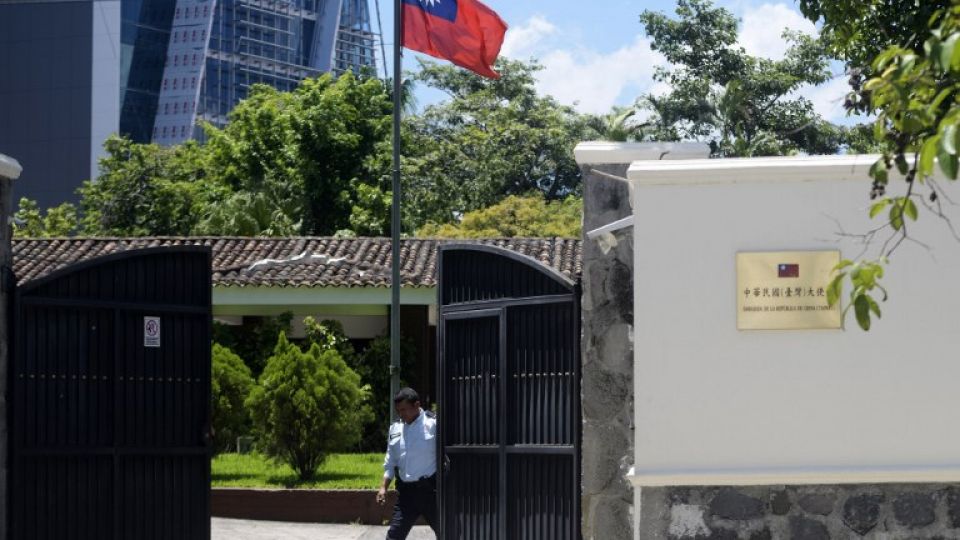January 7, 2019
The by-election comes after a disastrous local election cycle where the pro-independence party lost heavily.
Taiwan’s ruling Democratic Progressive Party (DPP) elected a new chairman on Sunday (Jan 6), choosing a moderate to fill up the post vacated by President Tsai Ing-wen after the party’s disappointing performance in recent polls.
Mr Cho Jung-tai, a consensus candidate backed by major party figures, took 72.6 per cent or 24,699 of the ballots cast by party members, according to Taiwan’s Central News Agency (CNA).
The former Cabinet secretary-general comfortably defeated Mr You Ying-lung, an openly pro-independence rival who supported a recent call by four party heavyweights for Ms Tsai not to seek re-election next year.
The DPP will confirm Mr Cho’s election as chairman at its central advisory meeting on Wednesday.
Mr Cho’s term will run until May 19, 2020.
Mr J. Michael Cole, a Taipei-based expert with the University of Nottingham’s China Policy Institute, said the vote result bolstered Ms Tsai’s chances of standing for a second term.
“Party members voted for continuity,” he told Agence France-Presse (AFP), adding that other countries “will also be reassured”.
“It certainly makes it much more likely that she will be on the ticket for re-election,” he said.
In 2016, Ms Tsai and the DPP secured a landslide election victory, sweeping away a government that had built much closer ties to China over the previous decade.
The result rattled Beijing because Ms Tsai refuses to acknowledge that the self-ruled island is part of “one China”.
Beijing cut communication with her administration, stepped up military drills, poached several of Taiwan’s dwindling diplomatic allies and started economically pressuring the island.
In November last year, Ms Tsai’s DPP suffered a string of defeats in local elections, fuelled by a backlash over her domestic reforms and deteriorating economic ties with China, Taiwan’s largest market.
Ms Tsai resigned the party chairmanship but stayed on as president, staying above the fray in the vote to replace her.
The DPP leadership vote is closely watched by China and the United States.
China still sees Taiwan as part of its territory to be reunified, despite the two sides being ruled separately since they split in 1949 after a civil war.
While Beijing has reacted frostily to Ms Tsai, she is from a much more moderate wing within her party that favours talks.
Ms Tsai is squeezed between China and more radical members of her own party who favour pushing for independence – something Taiwan has never formally declared.
While the win means Ms Tsai is less likely to clash with her party’s new leader, the DPP remains divided and Ms Tsai has yet to declare whether she will run again in next year’s presidential election.
A party schism in the run-up to 2020 could favour the Kuomintang, the pro-Beijing party that was turfed out two years ago. It doubled its seats in November’s elections, even defeating the DPP in its traditional stronghold of Kaohsiung.
A DPP swing towards its more radical wing might also worry Washington, reported AFP.
The US remains Taiwan’s most powerful military ally but maintains that Taipei must not move closer to a formal declaration of independence for fear of stoking a Chinese invasion.
On Wednesday, Chinese President Xi Jinping described Taiwan’s unification with the mainland as “inevitable”, adding Beijing is willing to discuss political as well as “peaceful unification” issues with political parties and groups in Taiwan that recognise the “one China” principle.
He also reiterated China’s willingness to use force if necessary, especially if Taiwan ever declares full independence.
On Saturday, Ms Tsai criticised Beijing’s plan to engage in political negotiations with opposition parties rather than her government.
In a Facebook post on Saturday, Mr Cho called on the people of Taiwan to stand united against China’s provocations and support Ms Tsai, reported news website Taiwan News.
Drawing an analogy to the sport of volleyball, Mr Cho said, “when a front-row player spikes the volleyball, the back-row players should not engage in finger-pointing”, the report said.


